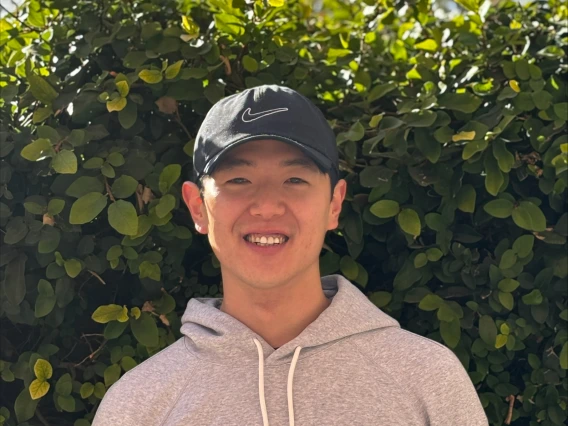Global Flu View Spark Program
Q&A Session
Funding Details
![]()
Number of selected candidates 3
![]()
Funding amount
$5,000 each
![]()
Duration
12 months
![]()
Funding type
Stipend
Topics and Expected Impact
GFV Activate
The goal of GFV Activate is to transform current participatory surveillance data into actionable epidemiological intelligence through systematic analysis and reporting. This theme will establish a routine workflow for examining data collected through Global Flu View and producing epidemiological bulletins in collaboration with partner institutions. Student involved in GFV Activate will focus on:
- Conducting regular descriptive and analytical epidemiological assessments of GFV data, including trend monitoring, geographic distribution, and demographic patterns of influenza-like illnesses
- Developing standardized epidemiological reports and bulletins designed for dissemination to academic partners, health departments, and community stakeholders
- Building and maintaining collaborative relationships with institutions interested in receiving or contributing to GFV-based epidemiological insights
Expected impact: GFV Activate will move the platform from data collection to knowledge production, creating a sustainable pipeline for translating surveillance information into meaningful public health communication. Students will gain practical experience in applied epidemiology, learning how to interpret participatory surveillance data and communicate findings to diverse audiences. The reports produced will serve as a foundation for future research collaborations and grant applications.
GFV AZCOVID TXT
This project will investigate the data collected through AZCOVID TXT, a text-message-based syndromic surveillance system deployed in Arizona. Students will perform a comprehensive examination of the existing dataset, assessing data quality, participation patterns, and overall performance of the system. In a second phase, the focus will shift to exploring potential associations between reported symptoms and epidemiological patterns at the zipcode level. Specific activities include:
- Analyzing the AZCOVID TXT dataset to characterize respondent demographics, symptom reporting frequency, geographic coverage, and temporal trends
- Evaluating data completeness and identifying factors associated with sustained participation over time
- Investigating spatial clustering of symptoms and exploring correlations between community-level symptom reports within the same zipcode
Expected impact: This analysis will generate new insights about the feasibility and value of text-based participatory surveillance in diverse communities. By examining symptom patterns at the zipcode level, students will contribute to our understanding of how localized syndromic data can complement traditional surveillance methods. Findings from this project may inform future enhancements to AZCOVID TXT and similar systems, and will provide evidence for the utility of low-barrier, mobile-based surveillance approaches in reaching populations underrepresented in conventional health monitoring.
GFV MANAGEMENT
GFV Management focuses on the operational backbone of the Global Flu View platform, ensuring system reliability, data integrity, and smooth functionality for all users. Students working on this project will take on the role of a data and system manager, supporting the technical infrastructure that sustains GFV. Core responsibilities will include:
- Monitoring system performance, including server health, response times, and resource consumption
- Testing and validating API endpoints to ensure data flows correctly between the platform and its connected applications
- Identifying, documenting, and helping resolve bugs or technical issues that affect user experience or data quality
- Supporting the development team with quality assurance tasks and system documentation
Expected impact: A robust and well-maintained platform is essential for any surveillance system to be trusted and used by public health practitioners. GFV Management will contribute directly to the sustainability of Global Flu View by improving system stability and reducing downtime. Students will develop practical skills in data systems management, quality assurance, and technical troubleshooting—competencies increasingly valuable in digital epidemiology and health informatics. Their work will also help create documentation and protocols that support future system improvements and onboarding of new team members.
What we offer
- Fully-Funded Opportunity: A $5,000 internship stipend to support your work over the course of the 12-month project.
- Skills Development in Digital Epidemiology and Participatory Surveillance: Participants will receive guided mentorship from the research faculty leading the project, with a focus on implementing digital tools for epidemiological research.
- Inspiration for Future Research and Dissertation Themes: Exposure to cutting-edge research and global health challenges will help students generate innovative dissertation topics that contribute to advancing public health knowledge.
- Opportunity to Co-Author Peer-Reviewed Papers: This opportunity enhances students’ research and writing skills, boosting their credibility and visibility in the academic community. It also prepares students for future scholarly pursuits, positioning them as knowledgeable contributors in their field of study.
- Internship Credits Eligibility: Students can earn internship credits through the GFV Spark Program, gaining professional public health experience, building a professional network, and refining post-graduation career plans.
What we expect
- Time Commitment: Rather than fixed weekly hours, this program is structured around milestone deliverables. Selected candidates will work toward specific project goals and outputs throughout the 12-month period. Some tasks may require up to 8 hours per week depending on the project phase and deadlines.
- In-Person Meetings: Students are required to attend regular in-person meetings at the Mel and Enid Zuckerman College of Public Health (Drachman Hall). These meetings are crucial for collaborative planning, progress updates, and direct mentorship from program leaders and peers. For students living outside the Tucson metropolitan area, flexibility may be considered for in-person attendance.
- Engagement with Public Health Departments: Students must be prepared to engage with state, local, or tribal public health departments as part of their project activities. These interactions are critical for understanding real-world public health challenges, integrating GFV into existing health monitoring systems, and fostering partnerships for participatory surveillance programs.
- Diligence and Commitment: We expect all participants to approach the project with diligence and a strong commitment to developing and executing their proposed activities. This includes conducting thorough research, strategic planning, and implementing initiatives that expand and enhance the utility of GFV.
- Communication Skills: Effective communication is vital to the success of the GFV Spark program. Students must possess excellent written and verbal communication skills, enabling them to clearly articulate ideas, collaborate with team members and stakeholders, and disseminate project outcomes. This also includes the ability to produce engaging promotional materials and reports.
Eligibility
Open exclusively to graduate students (MS, MPH, PhD, DrPH) of the Mel and Enid Zuckerman College of Public Health.
Application Process
Interested applicants should submit a detailed application via this application form outlining their project idea. Additionally, candidates are required to submit a 2-minute video explaining why they should be selected for this opportunity.
Evaluation Criteria
Applications will be evaluated based on the clarity of ideas, innovative approach, feasibility, potential impact, and alignment with the objectives of the program.
Deadline
All proposals must be submitted by February 13th, 2026. Late submissions will not be considered.
Interviews with shortlisted candidates will be scheduled for February 20, 2026.
Award Notification
Successful applicants will be notified by March 2nd, 2026
Useful Resources
Contact Information
For further inquiries about the GFV Sparks program, please contact Prof. Onicio Leal at onicio@arizona.edu.
We look forward to your innovative proposals and to collaborating in advancing Global Flu View for a healthier future.
2024 - 2025 GFV Spark Cohort

Paulina Colombo, PhD Student in Epidemiology
Project title: Influenza Forecasting in Arizona: An AI-powered approach to predict local flu cases and plan hospital resources.
Paulina's project aims to harness the power of artificial intelligence to predict flu outbreaks in Arizona and help hospitals prepare for sudden surges in patients. By using machine learning techniques, the project will analyze large sets of flu data—from nationwide statistics to local Arizona trends—to anticipate flu cases 2–4 weeks in advance. First, the system is trained on comprehensive data from Global Flu View to capture overall patterns in flu activity. It then fine-tunes these insights with historical flu numbers specific to Arizona, making the forecasts more accurate for our region. Next, these predictions are converted into practical estimates of hospital bed usage in Arizona, ensuring local health facilities have the information they need to manage potential spikes in flu patients. This AI-driven forecasting tool promises to provide timely alerts for healthcare providers, making it easier to allocate resources and respond effectively to flu outbreaks across Arizona.

Seunghoon (Kelly) Lee, PhD Student in Biostatistics
Project title: AI-Driven Influenza Forecasting: Leveraging ensemble learning for accurate ILI predictions in U.S.
Predicting Influenza-like Illness (ILI) in real-time is challenging due to flu’s seasonal and unpredictable nature. While machine learning (ML) models have improved prediction accuracy, issues like data quality, feature selection, and regional adaptability remain. This project aims to develop a machine learning-based ILI forecasting model for specific regions in U.S. using ensemble learning techniques. The process will involve selecting and testing different ML algorithms to identify the best models for ensemble integration. The model will be tailored to region’s specific characteristics by carefully selecting relevant features. Finally, it will be trained on global data from the Global Flu View program to assess its ability to generalize across different states.

Royani Saha, PhD Student in Environmental Health Sciences
Project title: GFV Hyperlocal: Integrating environmental factors for Omni-channel flu surveillance
The goal of GFV Hyperlocal is to improve flu surveillance by integrating real-time environmental data to predict and prevent outbreaks more effectively. When we utilize factors like air quality, weather conditions, wastewater analysis, and community reports, traditional surveillance systems can have a clearer picture of how flu spreads. And these additions are possible by using GFV Hyperlocal. With real-time monitoring, health officials and communities can act faster, launching data-driven interventions, and tailoring responses to local needs. This innovative approach connects environmental science with public health, creating a smarter, more adaptive system that keeps communities healthier and better prepared for flu season.


